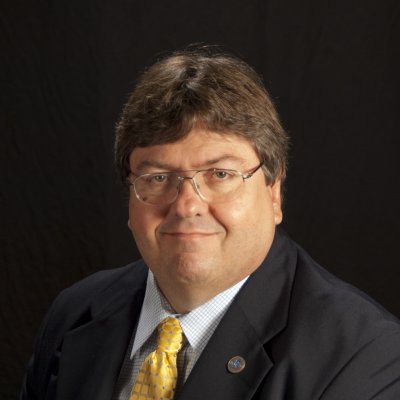Rick C. Mathews

Contact
About
Rick Mathews is a Public Service Professor at Rockefeller College and in the College of Emergency Preparedness, Homeland Security and Cybersecurity where he teaches in the areas of homeland security and emergency management and serves as the director of simulations and behavior-based training. Prior to this role, he served as director of the National Center for Security and Preparedness (NCSP). NCSP provides technical assistance, conducts research, and develops and delivers training across the nation in the areas of homeland security, infrastructure protection, intelligence, counter-terrorism and terrorism interdiction, information sharing, weapons of mass destruction, critical decision making, facility and systems security, and emergency preparedness, among others. Under Mathews’ guidance, NCSP became a national leader in providing realistic scenario based training for first responders and public servants.
Prior to his position at the NCSP, Mathews served as the Assistant Director for Research and Development at the National Center for Biomedical Research and Training (NCBRT), Academy of Counter-Terrorist Education at Louisiana State University from January 2002 through July 2007. His initial assignment at the NCBRT was to oversee the development and management of counter-terrorist preparedness training programs within the bioterrorism, medical, and public health communities. In September 2004, the NCBRT reorganized, and he accepted responsibility for directing the Research and Development Division, which encompassed Project Development, Instructor Development, Research, Analysis, and Marketing, and Technical Communications. Among other areas, the R&D Division had primary responsibility for involving course development, instructor development/certification and training, mentoring for stakeholders and other training partners, technical communications, as well as grant and research efforts. While at the NCBRT, he led the development of 20 new courses and was instrumental in the significant revisions of eight other courses. Mathews also oversaw the production of four training videos as well as the provision of technical assistance to multiple organizations and government agencies.
His professional experience includes more than 35 years in emergency medical services, hospital administration, emergency preparedness, counter-terrorism, and homeland security. Mathews held positions as Director of Emergency Medical Services, hospital vice-president, and director of risk management. His personal consulting activities have included the provision of technical assistance and training services for clients in both the public and private sectors in the areas of counter-terrorism, security, disaster planning, emergency preparedness and security assessments/training/planning, EMS system improvement, HIPAA training and compliance, EPA compliance/hazardous spill emergency response planning, curriculum development, strategic planning, and general policy development and training at the local, state, federal and international levels.
Mathews earned both his baccalaureate and master’s degrees from Indiana State University where his graduate work focused on the areas of health and safety administration. After completing graduate school, he took a faculty position at Indiana State University with responsibility for instructing in the areas of corporate safety, emergency preparedness and disaster management, and health administration.
Mathews received his initial EMT certification in 1975, and completed paramedic training in 1984. He participated in rescue efforts immediately following the April 19, 1995 explosion at the Alfred P. Murrah Federal Building in Oklahoma City, and served as a technical consultant to the Louisiana Department of Health’s Emergency Preparedness Planner during the response and recovery phases of Hurricane Katrina. In this capacity, he dealt particularly with issues surrounding the establishment and operation of the PMAC field hospital.


